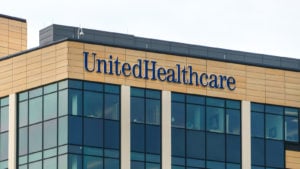With inflation taking center stage once again, it’s becoming clear that consumers are prioritizing wants and needs. One of those “non-discretionary” expenses is healthcare, which makes it a good time to look for healthcare stocks to buy.
But this is more than a short-term story. According to the Population Reference Bureau, the number of Americans who are 65 and older will reach 95 million by 2060. That’s nearly double the 52 million of “senior citizens” in the U.S. in 2018.
But what does the aging of America really mean? For starters, 95 million Americans means that nearly a quarter of the country’s population will fall into this category. Investors would be wise to note that there will be significant money being spent on healthcare.
But once again, how do you quantify that? RegisteredNursing.org reports that individuals 65 years old and up spend approximately $11.3 thousand per person annually. That means this demographic alone will account for $1.06 billion in healthcare spending.
Now we’re getting somewhere. That gives long-term investors over one billion reasons to look for healthcare stocks to buy. Especially when you can buy stocks of blue-chip companies that are generating significant revenue and earnings. Here are three companies that look great for the long haul while also offering investors some value right now.
United Healthcare (UNH)

You can’t talk about healthcare stocks to buy without talking about health insurance. UnitedHealth Group (NYSE:UNH) is the largest health insurer in the United States by market capitalization.
Health insurance is certainly a catalyst for the stock because insurance accounts for approximately 78% of the company’s revenue. But investors shouldn’t ignore the company as an example of how artificial intelligence (AI) can be successfully monetized. The company’s Optum division is powered by AI.
UNH stock is also an example of why investors should prioritize a stock’s value over its price. At over $470 per share, UnitedHealth carries a steep price tag. However, investors get significant value for their investment. For starters, the stock trades at 19x forward earnings.
And at a time when many companies are reporting declining earnings, UnitedHealth is projecting earnings growth of higher than 12.5% in the next year. That’s one reason that analysts are bullish on UNH stock and give it a consensus price target of just under $575, which is approximately 19% higher than the current price as of this writing.
Johnson & Johnson (JNJ)

I agree with InvestorPlace contributor Larry Ramer, who suggests that there may be more pain to come for Johnson & Johnson (NYSE:JNJ) in the next few years. The issue of what measures the company will take to pay for the settlement of its long-running talc lawsuit is not insignificant. Still, the company has roughly landed on a settlement figure of around $8.9 billion. And as another InvestorPlace contributor wrote, it’s now a known known rather than an unknown.
In any event, this is a list of healthcare stocks to buy for the long haul. And if you have a buy-and-hold disposition, now is the time to buy JNJ stock. It’s trading at 15x forward earnings, and analysts are forecasting the company will grow earnings by 10% in the next 12 months.
Plus, the company is a dividend king that has increased its dividend for 62 consecutive years. That streak may be put to the test by the talc settlement, but investors can cross that bridge when, and if, it comes. In the meantime, JNJ stock presents itself as one of the undervalued healthcare stocks to buy.
Abbott Laboratories (ABT)

If you need a dividend king with fewer headwinds in its near future, you can consider Abbott Laboratories (NYSE:ABT). The global healthcare giant specializes in developing, manufacturing, and marketing essential healthcare products.
One of those essential products since 2020 has been its Covid-19 tests. And the company’s revenue is down slightly in 2023 as sales of those tests is down sharply. But like many healthcare companies, the story of Abbott comes down to constant innovation. The company recently received FDA approval for its AVEIR DR Dual leadless pacemaker, the first of its kind approved by the FDA.
These products, along with recent products to help fight diabetes, should give revenue and earnings a lift in the future. That will allow value-oriented investors to look at the company’s strong fundamentals. These include a forward P/E of 22x and a dividend that has a yield of 2.01% and pays out $2.04 per share annually.
On the date of publication, Chris Markoch did not have (either directly or indirectly) any positions in the securities mentioned in this article. The opinions expressed in this article are those of the writer, subject to the InvestorPlace.com Publishing Guidelines.
